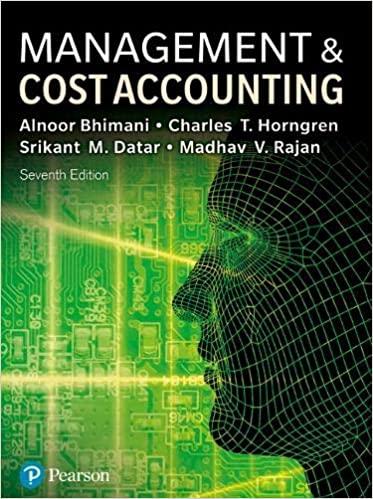Question
Sydney Co manufactures mobile phone handsets. In its factory, three handsets (X, Y and Z) are in continuous mass production. Each handset incorporates approximately 40
Sydney Co manufactures mobile phone handsets. In its factory, three handsets (X, Y and Z) are in continuous mass production. Each handset incorporates approximately 40 items of raw materials and semi-finished components that are bought from outside suppliers.
Recent sales of X and Y have declined and Sydney Co is considering discontinuing these handsets and replacing them with a large range of differentiated handsets.
Sales of Z remain healthy and a 40% return on the recent investment of $650,000 in the product will be required next year, when the selling price of Z is set at $450 per unit and sales are expected to be 1,000 units.
The differentiated handsets (including Z) would be highly customised and frequently renewed to adopt the latest technologies and allow for market changes. They would be produced in small batches with production lines switching frequently from one product to another.
The target cost for one of the new handsets, the Wizzle, has been calculated as $45, which is 10% less than the actual cost currently achievable. Sydney Co is considering some internal training to improve the efficiency of labour and so reduce the cost gap. The current material cost of $12 per unit will not change as efficiency changes. Labour rates are $12 per hour.
The budgeted distribution costs for next year are as follows:
$
Transport costs 2,631,200
Order processing 1,573,000
Total distribution costs 4,204,200
It is estimated that in the next year, 325,000 orders will be processed and that the delivery vehicles will travel 1,495,000 kilometres (km). Customer A has indicated that 138 orders, each of which will require a journey of 122km, will be placed in the next year.
The management accountant is keen that Sydney Co adopts ABC as he claims it will bring a range of benefits including accounting for environmental costs.
1. Which of the following statements regarding the implementation of ABC in Sydney Co is/are true?
- It would recognise that some overhead costs do not depend directly on the volume of handsets manufactured
The cost of implementing ABC may exceed the benefits for Sydney Co
i only
ii only
Both i and ii
Neither i nor ii
2. Using an ABC approach, what is the distribution cost for Customer A (to the nearest $10)?
$38,890
$30,300
$47,340
$29,630
3. How may Sydney Co close the cost gap on the Wizzle?
- Ask its employees to work overtime in order to complete work ahead of schedule
- Substitute current raw materials with cheaper ones
- Negotiate cheaper rent for its premises
- Raise the selling price of the Wizzle
4. Which of the following activities will be necessary if ABC is to be used in accounting for environmental costs?
Analysing costs into material, system and delivery and disposal categories
Identifying the environmental cost of the new range of products over their entire expected life
Identifying environment-related costs that can be directly traced to Sydney Co's cost centres
Measuring inputs to Sydney Co's processes and the resulting outputs
5. What is the target cost for each unit of handset Z next year?
Step by Step Solution
There are 3 Steps involved in it
Step: 1
The detailed answer for the above question is provided below Solutions to Sydney Cos Case Study 1 Which statements regarding ABC implementation are tr...
Get Instant Access to Expert-Tailored Solutions
See step-by-step solutions with expert insights and AI powered tools for academic success
Step: 2

Step: 3

Ace Your Homework with AI
Get the answers you need in no time with our AI-driven, step-by-step assistance
Get Started


